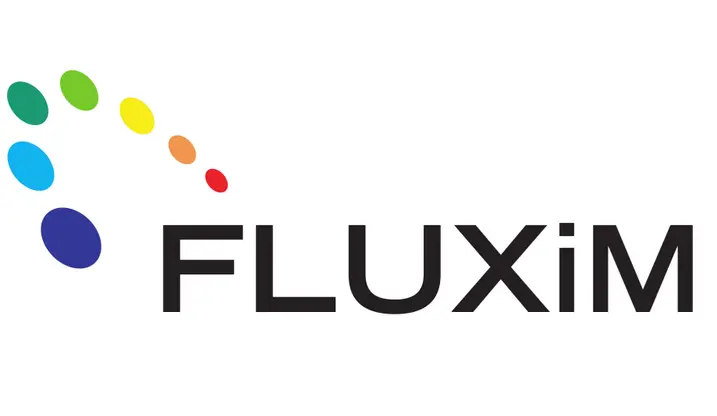International Conference on Simulation of Organic Electronics and Photovoltaics, SimOEP 2020, August 31 - September 2, 2020
The SimOEP conference brings together modeling experts and device physicists from industry and academia in the field of organic and perovskite solar cells as well as OLEDs. The addressed topics include charge and heat transport, exciton dynamics, light propagation and the simulation domain ranges from nanometer to centimeters.
Previous conferences
<svg xmlns="http://www.w3.org/2000/svg" viewbox="0 0 256 256" class="iconpack phosphor phosphor-arrow-up-right-bold" fill="currentColor" role="img"><rect width="256" height="256" fill="none"></rect><line x1="64" y1="192" x2="192" y2="64" fill="none" stroke="currentColor" stroke-linecap="round" stroke-linejoin="round" stroke-width="24"></line><polyline points="88 64 192 64 192 168" fill="none" stroke="currentColor" stroke-linecap="round" stroke-linejoin="round" stroke-width="24"></polyline></svg>Conference website SimOEP 2018Conference website SimOEP 2016

Products of Organic Electronics and Photovoltaics are successfully penetrating consumer electronics and renewable energy markets. Commercialization is accelerating continuously and everyone can enjoy amazing new products to buy, for instance stunning OLED displays for mobile devices and TVs as well as flexible organic solar cells. With the commercial success of OLED display products and the rise of perovskite solar cells one may be tempted to disregard the many research challenges that we are still facing in this field and which prevent an even wider exploitation of these technologies.
The challenges are manifold. So are the synthetic materials these technologies are based on. Physical models and simulation algorithms are very useful in this context. They enable scientists to explore the behavior of a material or device on a computer. On the one hand, the numerical models help to understand and interpret measurement data and to further develop refined and reliable physical models. On the other hand, the models allow one to optimize materials and devices. Progress in this field relies on an interdisciplinary approach that combines experimental, physical, chemical and numerical expertise.
The motivation of this unique conference is to bring together these experts and enjoy a fruitful scientific exchange among them that will focus on a comprehensive range of topics. This will eventually lead to ever more reliable, validated physical models which accelerate our research efforts. We are pleased to chair this conference that continues a series of successful international simulation workshops on this topic previously held in Switzerland (2010, 2011, 2016, 2018) and Spain (2012, 2014). This year, the event will again host hands-on training seminars with R&D tools from Fluxim AG.
Conference Committee
Beat Ruhstaller, ZHAW Zurich University of Applied Sciences
Evelyne Knapp, ZHAW Zurich University of Applied Sciences
Topics
- Light management for enhanced light-absorption in solar cells and enhanced light emission in OLEDs
- Charge and exciton transport modeling in organic semiconductor devices – from molecular to the device level
- Charge transport modeling in various organic and hybrid solar cells:
planar and bulk heterojunction perovskite and organic solar cells - Charge injection, transport and recombination processes in state-of-the-art OLEDs
- Models for a variety of electrical device characterization techniques from DC, transient to AC operation
- Advanced optical and electrical characterization techniques and experimental validation
- Parameter extraction techniques
- Morphological structure and property correlation
- Advanced materials and devices such as novel LEDs, ionic devices, QD materials, and non-fullerene acceptors
- Machine Learning
Conference Videos
Emerging PV: Session 3
OLED: Session 1
OLED: Session 2
OLED: Session 3
Novel Devices/PV: Session 1
Novel Devices/PV: Session 2
Novel Devices/PV: Session 3
Speakers
| Topic | ||
|---|---|---|
| Tudur David | Bangor University, UK | Lifetime and performance prediction for organic and perovskite solar cells through machine learning |
| Michael Hess | Battronics AG, CH | New Li-ion battery technologies introduced in EVs and their characterization |
| Quentin Jeangros | EPFL PVLab, CH | Perovskite/silicon tandem solar cells: microstructural aspects & efficiency |
| Thomas Kirchartz | FZ Jülich, DE | Characterization and modelling of perovskite solar cells |
| Matthias Liero | WIAS, DE | Drift-diffusion simulation of S-shaped current-voltage relations for organic semiconductor devices |
| Jenny Nelson | Imperial College, UK | Device-scale and molecular-scale modelling of organic photovoltaic devices |
| Simon O'Kane | Imperial College, UK | Physics-based modelling of Li-ion batteries |
| Ulrich Paetzold | KIT, DE | Energy yield modelling of perovskite based tandem photovoltaics |
| Andreas Riedinger | Max Planck Institute for Polymer Research, DE | Kinetically driven self-assembly of semiconductor nanoplatelets |
| Martin Stolterfoht | University of Potsdam, DE | Pathways towards 30% efficient single-junction perovsikte solar cells: the role of mobile ions and interfaces |
| Koen Vandewal | Hasselt University, BE | Emissive and charge-generating donor-acceptor interfaces |
| Gert-Jan Wetzelaer | MPI Mainz, DE | Efficient and stable single-layer organic light-emitting diodes |
| Urs Aeberhard | Fluxim AG, CH | Opto-electronic modeling of organic and hybrid multijunction solar cells |
| Matthias Diethelm | EMPA, CH | The dynamic emission zone in sandwich polymer light-emitting electrochemical cells |
| Sandra Jenatsch | Fluxim, AG, CH | Electro-thermal simulation and optimisation of organic solar cells and modules |
| Gaël Mourouga | ZHAW ICP, CH | Capacity fade in redox flow batteries: coupled phenomena of transport in concentrated solutions |
| Markus Regnat | ZHAW ICP, CH | Analysis of degradation phenomena in exciplex TADF OLEDs |
| Stefano Sem | Fluxim AG, CH | Analysis of photoluminescence transients of TADF OLED emitter materials |
| Wolfgang Tress | ZHAW ICP, CH | Transient photovoltage measurement of perovskite solar cells |
| Simon Zeder | Fluxim AG, CH | Hybrid drift-diffusion master equation modeling approach for OLEDs |
Book of Abstracts
Download the book of abstracts(PDF 7,7 MB) (version from 02.09.2020).
Venue
This is an online event.



